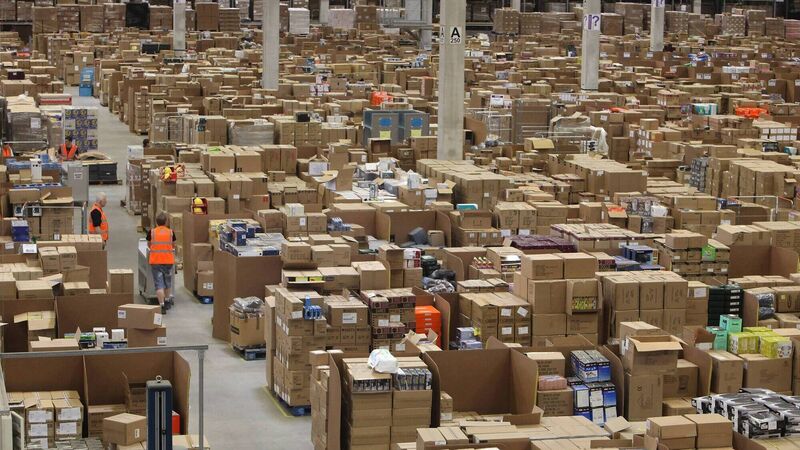The VAT clock on online purchases stops ticking on July 1

Irish consumers purchasing goods from, for example, an Amazon fulfilment centre, above, in Swansea, Wales (located outside of the EU), may have to pay extra VAT and extra duties on the doorstep. Picture: Matt Cardy/Getty Images
Irish e-commerce traders are bracing themselves for a fresh wave of disruption in the coming week, akin to the Brexit issues of last January.
On July 1, new regulations will come into force making all packages from outside Europe subject to VAT. This means that VAT will have to be paid on all parcels entering the EU block and Northern Ireland, regardless of how small the value.











